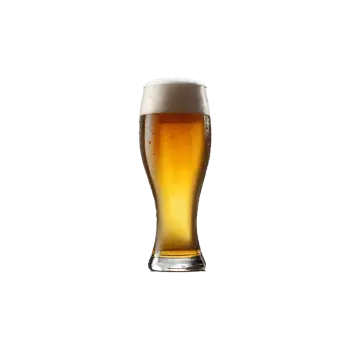Quick version
A Vital Organ with Many Functions
The liver is one of the body's most vital organs and is responsible for a range of essential functions. It produces substances such as proteins, sugars, fats, and hormones, and regulates metabolism. The liver also plays a crucial role in blood clotting. It produces and secretes bile, a yellow-green fluid that helps break down fats so they can be absorbed by the intestines.
The liver also acts as a storage unit for energy, vitamins, and minerals by converting excess blood sugar into glycogen and storing it until needed. It contributes to the immune system by filtering bacteria from the intestines. Finally, the liver functions as a detoxification center, breaking down medications, alcohol, and other harmful substances, which are then excreted through bile, stool, or urine.
Common Signs and Causes of Liver Problems
Liver problems can be caused by a range of factors. Common causes include excessive alcohol consumption, which can lead to fatty liver, hepatitis, or cirrhosis. Viral infections like hepatitis B and C can also cause inflammation and liver damage. Fatty liver, usually related to obesity and type 2 diabetes, is another common cause. Additionally, certain medications and toxins can negatively affect liver function. Hereditary conditions such as hemochromatosis, where the body stores too much iron, can also lead to severe liver problems.
Jaundice (Icterus)
Jaundice is a clear sign that something is wrong with the liver. It occurs when bilirubin, a yellow compound produced during the breakdown of red blood cells, accumulates in the body. This can cause the skin and the whites of the eyes to turn yellow.
Abdominal Pain and Bloating
Abdominal pain or discomfort in the upper right part of the abdomen can indicate liver problems. Bloating or ascites (fluid buildup in the abdomen) may also be a sign of advanced liver disease.
Changes in Urine and Stool
Changes in urine and stool, such as dark-colored urine and pale or clay-colored stool, can signal issues with the bile ducts or liver diseases affecting bilirubin metabolism.
Itching
Itching all over the body can result from bile salts accumulating in the skin when the liver is not functioning properly.
Fatigue and Weakness
One of the most nonspecific but perhaps common symptoms of liver problems is fatigue and a general feeling of weakness. If you feel unusually tired despite adequate sleep, it may be worth investigating your liver function, although there are, of course, other factors and causes that can contribute to this.
Practical Tips to Improve Your Liver Health
Taking care of your liver is essential for long-term health. By making small changes in your daily life, you can give your liver better conditions to function optimally. Below are some practical tips that can help strengthen and protect your liver.
Eat a More Balanced Diet
A diet rich in fruits, vegetables, whole grains, and lean proteins can help keep your liver healthy. Avoid excessive intake of sugar, fat, and salt.
Limit Alcohol Consumption
Alcohol is a major burden on the liver. Try to limit your alcohol intake or avoid it altogether to reduce the risk of alcohol-related liver damage.
Exercise Regularly
Regular physical activity helps reduce fat buildup in the liver and improves its function. Aim for at least 150 minutes of moderate-intensity exercise per week.
Monitor Your Medication Use
Certain medications can negatively affect the liver, and long-term use can damage your liver. Always consult your doctor before starting or stopping any medication.
Check Your Liver Values
Regular health check-ups can help detect early signs of liver disease. Common blood tests that measure liver enzymes include (ALT, AST, ALP, GGT, and Bilirubin). By analyzing your results, you can gain insights into your liver’s health. If you are interested in checking your liver health, you can read more about the health check Liver Test which includes all liver markers to give you a comprehensive overview of your current liver function.
Scientific Evidence and Studies
According to a study published in the Journal of Hepatology (2018), early detection of liver diseases through regular health check-ups can reduce the risk of serious complications by up to 40%. Another study from The Lancet (2020) highlights the importance of lifestyle changes such as diet and exercise in improving liver health in individuals with non-alcoholic fatty liver disease (NAFLD).

























